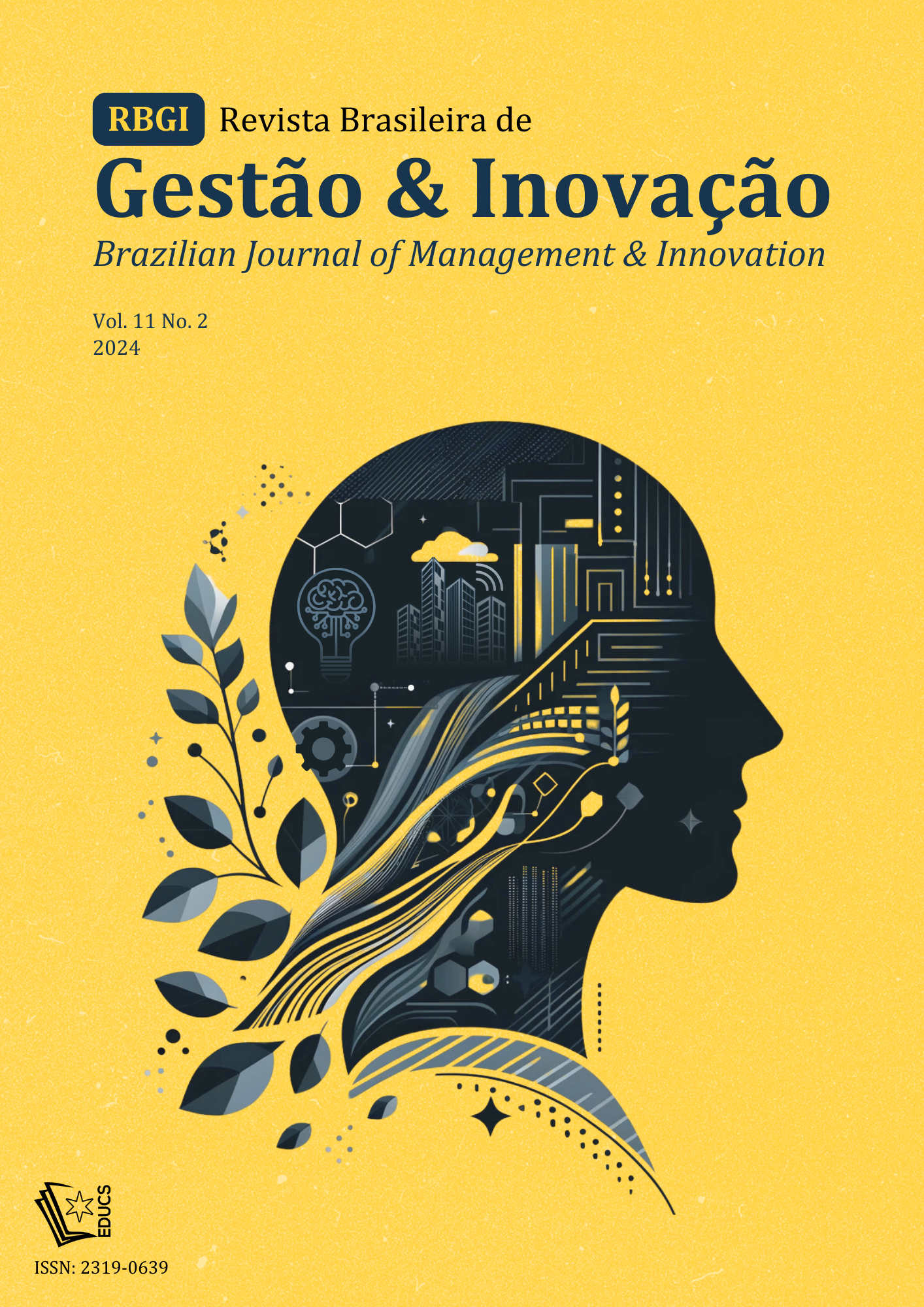VERTICALIZATION AND EXPLOITATION AND EXPLORATION ACTIONS
Keywords:
Verticalização, Ações de Exploration, Ações de Exploitation, Cooperativas AgropecuáriasAbstract
The objective is to analyze the existence of a difference between the cooperatives that focus their verticalization upstream and downstream and the exploitation and exploration actions, respectively, in agricultural cooperatives in Goiás. The study was carried out by applying a questionnaire to cooperatives, for which 35 valid responses were obtained. Data were analyzed using non-parametric mean tests (Mann-Whitney). The results found show that cooperatives that carry out activities upstream of the chain (Supply of Inputs and Technical Assistance and Rural Extension) have a higher average for exploitation actions when compared to cooperatives that do not carry out such activities and downstream of the production chain, the cooperatives that develop (Technical Assistance and Rural Extension) also have a higher average for the exploration actions when compared to the others, as for the activities carried out downstream of the production chain, the Industrialization of Production and Commercialization of Production activities, for which there was no significance, it was observed that mainly the Industrialization of Production activity needs investments to be carried out. The research made it possible to understand the structure of the productive chain of agricultural cooperatives in the state of Goiás, based on the discussions presented about agrifood markets, the fragmentation of consumer preferences and the need to create new products as a competitive strategy, demonstrates the need to make investments in order to make such cooperatives more competitive in the current scenario.
Published
How to Cite
Issue
Section
License
Copyright (c) 2024 Brazilian Journal of Management & Innovation

This work is licensed under a Creative Commons Attribution 4.0 International License.
The author must guarantee that:
- there is full consensus among all the coauthors in approving the final version of the document and its submission for publication.
- the work is original, and when the work and/or words from other people were used, they were properly acknowledged.
Plagiarism in all of its forms constitutes an unethical publication behavior and is unacceptable. Revista Brasileira de Gestão e Inovação has the right to use software or any other method of plagiarism detection.
All manuscripts submitted to RBGI - Revista Brasileira de Gestão e Inovação go through plagiarism and self-plagiarism identification. Plagiarism identified during the evaluation process will result in the filing of the submission. In case plagiarism is identified in a manuscript published in the journal, the Editor-in-Chief will conduct a preliminary investigation and, if necessary, will make a retraction.
This journal, following the recommendations of the Open Source movement, provides full open access to its content. By doing this, the authors keep all of their rights allowing Revista Brasileira de Gestão e Inovação to publish and make its articles available to the whole community.
RBGI - Revista Brasileira de Gestão e Inovação content is licensed under a Creative Commons Attribution 4.0 International License.
Any user has the right to:
- Share - copy, download, print or redistribute the material in any medium or format, linking to RBGI site.
- Adapt - remix, transform and build upon the material for any purpose, even commercially.
According to the following terms:
- Attribution - You must give appropriate credit, provide a link to the license, and indicate if changes were made. You may do so in any reasonable manner, but not in any way that suggests the licensor endorses you or your use.
- No additional restrictions - You may not apply legal terms or technological measures that legally restrict others from doing anything that the license permits.
#RBGI







